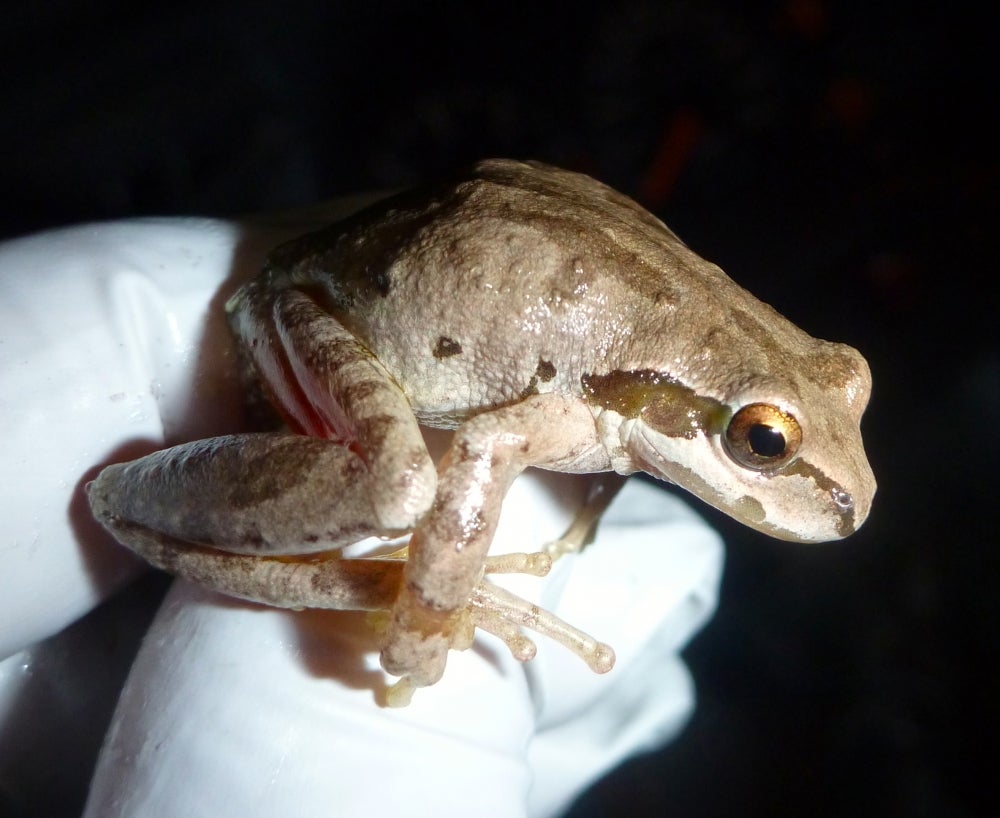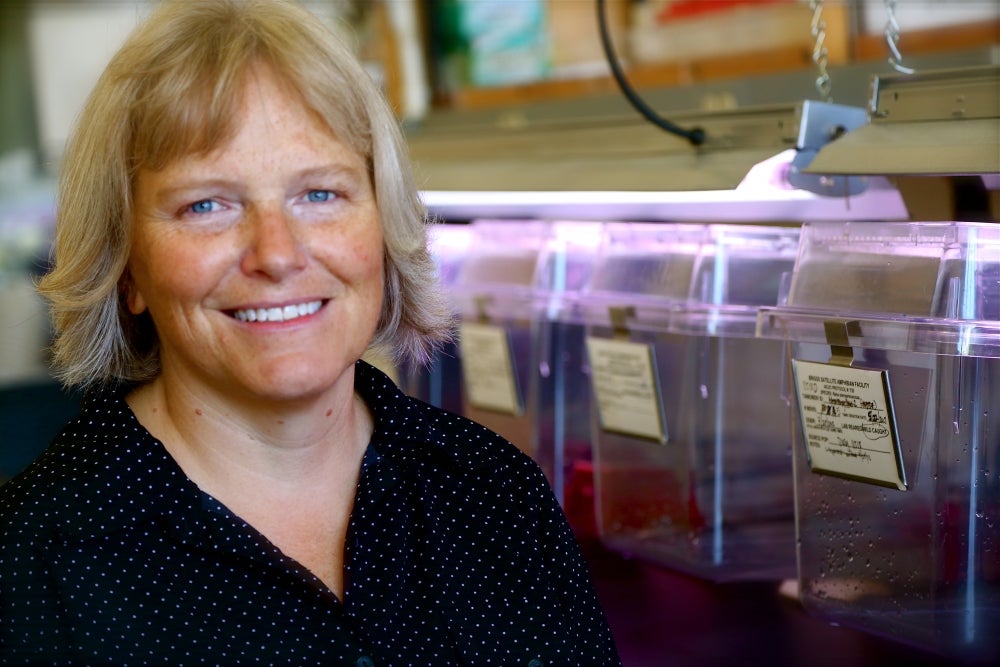
New Grant Supports Research on Infectious Disease Transmission

West Nile virus. Hantavirus. Lyme disease. All are infectious diseases spreading within animal and human populations. Scientists are now asking if our interaction with the environment is somehow responsible for the increased incidence of these diseases.
UC Santa Barbara's Cheryl J. Briggs, the Duncan and Susan Mellichamp Chair in Systems Biology, is working to find an answer to that question. Although Lyme disease is one area of focus in her lab, with a grant from the Ecology and Evolution of Infectious Diseases (EEID) Initiative, Briggs and her team will be studying pathogens that attack and kill frogs. EEID is a joint program of the National Science Foundation (NSF) and the National Institutes of Health (NIH).
According to Briggs, who has joint appointments in the Department of Ecology, Evolution and Marine Biology and the Biomolecular Science and Engineering Program, results from this work will build toward a more mechanistic understanding of how changes in complex ecological communities — including both hosts and pathogens — interact to influence disease risk. This will lay a foundation to develop effective tools for forecasting epidemics and improving understanding of disease emergence in both humans and wildlife. A broader understanding of the conditions in which pathogens interact to affect disease patterns has immediate relevance for public health, conservation and wildlife management.
Briggs's project, "Disease in complex communities: How multi-host, multi-pathogen interactions drive infection dynamics," focuses on three pathogens that have been widely implicated in causing amphibian pathology: the chytrid fungus Batrachochytrium dendrobatidis, the trematode Ribeiroia ondatrae and viruses in the genus Ranavirus. Briggs and her collaborators will investigate how interactions among pathogens at different scales of biological complexity combine to influence disease dynamics. They will study how within-host interactions between the pathogens and the host immune system can influence pathogen transmission between individuals, and the resulting impacts on the host populations and communities.
"Amphibians and their pathogens are a convenient system for this work, because experimental and field studies are possible," says Briggs, "but there is also an added urgency to understanding pathogen interactions in this system, because emerging infectious diseases are one of the most important causes of amphibian population declines and extinctions worldwide."
The NSF and NIH — in collaboration with the U.S. Department of Agriculture's National Institute of Food and Agriculture and the U.K.'s Biotechnology and Biological Sciences Research Council — have awarded more than $16 million in new EEID grants. The EEID program supports efforts to understand the ecological and biological mechanisms behind human-induced environmental changes and the emergence and transmission of infectious diseases.
"Our understanding of the ecology and evolution of pathogens comes from knitting together information from many different sources," says Sam Scheiner, NSF EEID program director. "They include diseases of humans, frogs, honeybees and plants. Each system provides a different piece of the puzzle that helps us protect human health, the health of our agricultural systems and that of our natural world."
Projects funded through the EEID program allow scientists to study how large-scale environmental events, such as habitat destruction, invasions of non-native species and pollution, alter the risks of emergence of viral, parasitic and bacterial diseases in humans and other animals. Researchers supported by the EEID program are advancing basic theory related to infectious diseases, and improving understanding of how pathogens spread through populations at a time of increasing environmental change.
The benefits of research on the ecology and evolution of infectious diseases include development of theories about how diseases are transmitted; improved understanding of unintended health effects of development projects; increased capacity to forecast disease outbreaks; and knowledge of how infectious diseases emerge and reemerge.
Briggs's additional collaborators include Andrew R. Blaustein of Oregon State University, Jason T. Hoverman of Purdue University, Pieter T. Johnson of the University of Colorado, and Jason R. Rohr of the University of South Florida.
Related Links
Briggs Lab
Ecology and Evolution of Infectious Diseases Initiative



